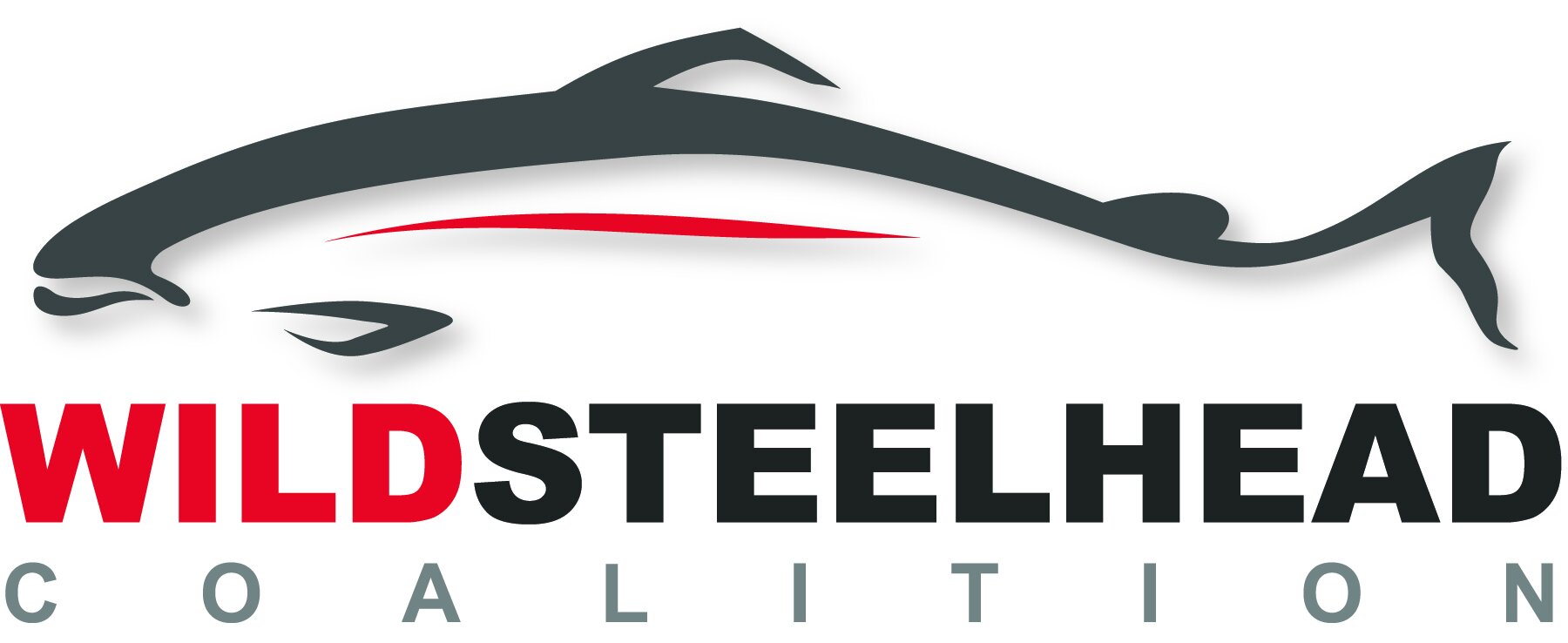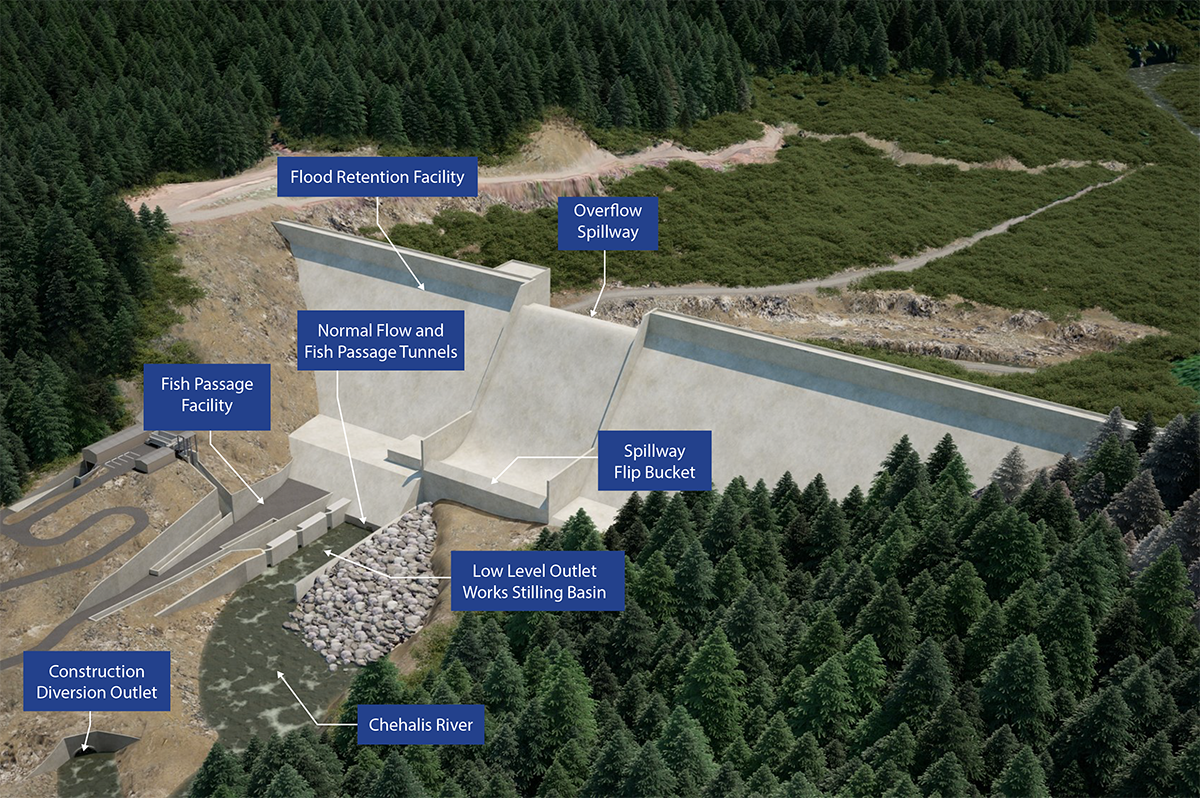This season's actions represent a recognition that these wild steelhead runs are truly imperiled, and an important start to transforming the management paradigm on Washington’s coast. Preventing the collapse of our wild steelhead populations is the immediate priority, but long-term, sustainable wild steelhead fisheries will require comprehensive, conservation-focused policy to restore their abundance. As steelhead anglers and advocates for these rivers, we should accept nothing less.
Read MoreFor decades, our community has been fighting vigorously to breach the Snake River dams and restore what was once one of the greatest steelhead and salmon runs on the planet. In recent years, the movement to “Free the Snake” has gained substantial traction, but limited political leadership has stymied this effort. However, at long last the prospects of freeing the Snake have dramatically improved thanks to Congressman Mike Simpson, who this week released a comprehensive proposal to breach the Snake River dams and restore this iconic watershed.
Read MoreThis week the Washington Department of Fish and Wildlife (WFDFW) announced the Skagit and Sauk rivers catch-and-release wild steelhead season will reopen this spring. The popular fishery remained closed last year due to low projected fish returns. The season will run from February 1st through April 13th and be operated under conservation measures, such as only fishing four days a week, to reduce anglers’ impact on struggling wild steelhead runs.
News of the upcoming spring 2021 catch-and-release steelhead season has travelled fast. The announcement has been met with a mix of celebration and concern across the angling community, especially in light of recent emergency rule changes affecting Washington’s coastal rivers, and how they could shift angling pressure to the Skagit.
Read More"The Times They Are A-Changin’ " – Bob Dylan
By Guy Fleischer, WSC Science Advisor
Steelhead populations on the West Coast are affected by what scientists often call the “four H’s”: Habitat degradation, Hatchery influence, Harvest, and Hydropower dams. But there is another critical element to their survival: the High Seas. Historically, most of our attention has been drawn to those issues which are mostly within plain sight and, for many anglers and conservationists, this has meant an intense focus on the freshwater portion of steelhead life cycles. But now, because of recent dramatic declines in survival, we need to pay attention to this key component beyond our immediate gaze, beyond that deep pool or run we are planning to fish. We need to think ‘salt’, because, without the Pacific Ocean, steelhead are, well, not steelhead.
Read MoreThere is no way to sugarcoat it, 2020 has been a brutal year for everyone, and to be honest it feels like the gift that keeps on taking. As tough as it has been for humanity, it has also been another rough year for wild steelhead, which continue to slip ever closer to extinction. The declining runs on the Olympic Peninsula, which just ignited early closures and some much-needed rule changes to reduce the angling community’s collective impact, are yet another powerful and harsh reminder of the tightrope we are walking when it comes to protecting wild steelhead while maintaining our ability to chase them.
Read MoreWDFW Law Enforcement Officers working on Washington’s Olympic Peninsula face a daunting landscape of remote wilderness, dense forests, and wild rivers. There are usually only a half dozen of them to cover all of Jefferson and Clallam Counties (an area of 4800 square miles), hundreds of miles of rivers stretching from the southern end of Hood Canal and wrapping all the way around to the Quinault River, and a thousand additional square miles of saltwater jurisdiction off the coastline.
The Officers are responsible for monitoring activity and enforcing the laws governing freshwater and saltwater sport and commercial fisheries, hunting seasons, some environmental permits, tracking commercial fish and shellfish sales and sourcing for restaurants and markets, illegal logging, orca sightseeing boats, and camping where it isn’t allowed.
Read MoreAfter weeks of public debate and anxiety within the steelhead angling community, Washington Department of Fish & Wildlife (WDFW) fishery managers have announced their emergency conservation rules for the upcoming winter steelhead season on Coastal and Olympic Peninsula rivers.
While partial and/or complete sportfishing closures were considered, the department is proceeding with a plan that bans fishing from boats and the use of bait, requires the use of single-point barbless hooks, and bans rainbow trout retention to protect juvenile steelhead. Seasons will close a few weeks earlier than previous years, with some variability among watersheds. These new regulations take effect on Monday, December 14 and run until further notice.
Read MoreIn an online meeting on Tuesday evening, Washington anglers heard updates from state fishery managers on projected wild winter steelhead run numbers and potential regulatory options for the upcoming winter angling season on Washington’s coastal rivers.
Broadly speaking, the news continues to be grim. Years of population declines, exacerbated by recent downturns in ocean productivity and survival, have continued. With a few notable exceptions, steelhead numbers are struggling across coastal watersheds. Anglers can, and should, expect less opportunity to fish on these rivers during the Winter and Spring of 2021.
Read MoreThe U.S. Army Corp of Engineers’ recent environmental review makes it even clearer that now is not the time to build a new dam on the Chehalis River. Instead, we must invest in smart, forward-thinking alternatives that can accomplish the dual goals of reducing flood impacts and restoring the basin’s critical aquatic ecosystems. Please take action today and help create a brighter future in the Chehalis Basin by telling the Army Corps to keep the Chehalis River flowing free!
Read MoreRecently, the Washington Fish and Wildlife Commission voted to approve a misguided plan to expand gillnetting on the Columbia River. The Wild Steelhead Coalition strongly opposes this plan and is working with our partners in the fish conservation and angling communities to undo the Commission’s preposterous decision to greenlight an expansion of this destructive commercial fishing practice, which will further endanger ESA-listed salmon and steelhead.
Read MoreFor the last three years, the WSC has been involved in an intense process as members of the Puget Sound Steelhead Advisory Group (PSSAG) to build practical consensus around a path forward for steelhead management in Puget Sound. Recently, PSSAG released the “Quicksilver: Restoring Puget Sound Steelhead & Fisheries” report, which is the product of this years-long effort. Take a minute to check out the WSC’s summary of this important initiative.
Read MoreWith the Columbia’s wild steelhead and salmon populations struggling and facing increasingly imminent threats, the last thing these declining salmonid stocks need is the expansion of destructive gillnet fisheries on the mainstem lower Columbia River. That's why the WSC sent a letter to the Washington Fish and Wildlife Commission urging them to reject a misguided proposal to reinstate this destructive practice.
Read MoreIn an effort to protect endangered salmon and steelhead, federal agencies have recently granted permission for Washington, Oregon and Idaho wildlife management agencies and six regional tribes to kill hundreds of California and Stellar sea lions in the lower Columbia River and its tributaries over the next five years.
Read MoreLast week we scored a major victory for wild steelhead when Governor Inslee directed state agencies to cease planning efforts for the proposed Chehalis River dam and instead develop a basin-wide, non-dam alternative to flood reduction.
Read MoreWe are proud to announce that WSC board member Josh Mills was named the Backcountry Hunters and Anglers Sigurd F. Olson Award winner for his tireless work to protect American public waters for the future.
Read MoreRecently, we submitted comments to the Washington Department of Ecology citing a litany of concerns with Cooke Aquaculture's proposal to transition their existing Atlantic salmon net pens to farmed triploid rainbow trout (steelhead) and urging the Department to conduct a full State Environmental Policy Act review for Cooke’s proposal to modify their water quality permits.
Read MoreThe WSC submitted its official comments today on the Draft Environmental Impact Statement (DEIS) for the proposed Chehalis dam project. Please take a minute to read these comments and learn about the litany of shortcomings with the DEIS as well as our general concerns with this misguided proposal.
Read MoreThere’s no doubt about it: this Washington winter steelhead season was as challenging as any in memory. It followed historic low summer steelhead runs that constrained fisheries on the Columbia River system.
Read MoreAbove the water’s surface, Hood Canal, Washington resembles a sportsperson’s paradise. From camping on the beach to hiking to rugged alpine lakes, to chasing deer and elk in thick timber, to foraging clams and oysters when the tide is out, outdoor opportunities abound in this verdant country. However, when you venture beneath the water’s surface and wade into the gorgeous, raucous rivers that carve up this stunning corner of Washington, you begin to see that something iconic is missing.
Read MoreGreat news from Olympia today as the Washington legislature passes Senate Bill 6613, which boosts the state’s ability to monitor and regulate fish farms in public waters!
Read More




















